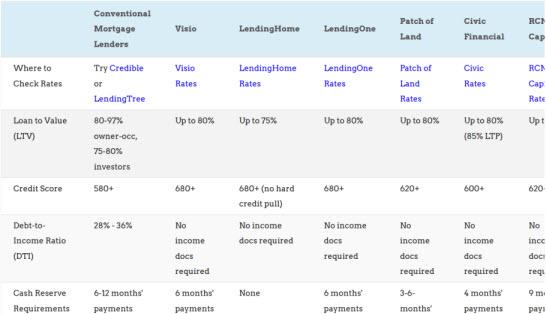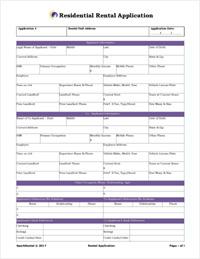At a Glance:
-
- Tax Liens vs. Tax Deeds: Tax liens are more passive (earning interest on unpaid property taxes), while tax deeds are active (buying properties outright and managing them).
- Hidden Opportunities: By targeting overlooked niches—such as live tax deed auctions in Texas or under-attended trustee foreclosure auctions—investors can find less competition and better deals.
- Caution & Preparation: Success requires due diligence, legal guidance, and starting small, as these strategies carry risks alongside strong profit potential.
When it comes to real estate investing, few areas strike fear or confusion into the hearts of investors quite like tax liens, tax deeds, and mortgage foreclosures. Many shy away from these opportunities, unsure of the rules, the risks, or the rewards.
But for Brian Sidensticker, founder of Tax Sale Resources and Mountain North Capital, these overlooked corners of the market have been the key to building a fortune. By niching down into spaces that most investors ignore, Brian has uncovered hidden inefficiencies and turned them into profitable opportunities.
Disclaimer
The information provided on this website is for general informational purposes only and should not be construed as legal, financial, or investment advice.
Always consult a licensed real estate consultant and/or financial advisor about your investment decisions.
Real estate investing involves risks; past performance does not indicate future results. We make no representations or warranties about the accuracy or reliability of the information provided.
Our articles may have affiliate links. If you click on an affiliate link, the affiliate may compensate our website at no cost to you. You can view our Privacy Policy here for more information.
Here’s a breakdown of what these investments are, how they work, and how you might approach them.
Tax Liens vs. Tax Deeds – What’s the Difference?
At a high level:
-
- Tax Lien – An investor purchases a lien against a property because the owner hasn’t paid their property taxes. The investor pays the county the owed taxes, and in return, they receive interest on the lien until the debt is repaid. They don’t own the property just a superior claim on it.
- Tax Deed – This comes into play when the taxes remain unpaid for several years. At this point, the property itself is sold to recover the taxes, and the buyer takes full ownership.
Key takeaway:
-
- Tax liens are generally passive—you’re earning interest while holding a claim on the property.
- Tax deeds are active—you’re buying real estate and taking on all the responsibilities of ownership.
Passive vs. Active Investing
If you’re looking for a hands-off investment, tax liens might be your best option. You don’t have to deal with repairs, tenants, or property management just due diligence and proper paperwork to maintain your claim.
Tax deeds, however, are much more active. They require on-the-ground involvement, property evaluations, and sometimes renovations. This is closer to traditional real estate investing just at a unique entry point.
How Interest Works on Tax Liens
In most states, tax lien holders are legally entitled to a set interest rate which can be quite attractive compared to other fixed-income investments.
However, each state operates differently:
- Some guarantee a minimum rate.
- Others make interest rates competitive through bidding.
Due diligence is essential to ensure you’re buying the right lien at the right terms.
The Power of Niching Down in Tax Deeds
Brian’s team focuses heavily on finding inefficiencies in tax deed sales. One big discovery? Live auctions.
Since COVID-19, many auctions moved online, increasing competition. But in states like Texas, certain auctions are still held live, attracting fewer bidders and more potential deals for those who can attend in person.
By targeting these less competitive opportunities, investors can acquire properties at favorable prices.
Hidden Opportunities in Mortgage Foreclosures
While many believe the mortgage foreclosure “golden age” ended years ago, Brian’s team uncovered a niche within this niche trustee auctions in Texas.
Here’s the secret:
-
- Everyone knows about big players like Auction.com, but they’re just one of many trustees.
- Other trustees can show up at any time during the auction window, sometimes reading their sale notice minutes before the cutoff.
- If no one’s there to bid, the property goes unsold—creating an opening for prepared investors.
- By simply being present and paying attention to these overlooked sales, savvy investors can pick up great deals with little competition.
Words of Caution
These opportunities aren’t “get-rich-quick” schemes.
Before diving in:
-
- Consult a real estate attorney who understands your state’s specific tax sale and foreclosure laws.
- Do your research there are as many ways to lose money in this space as there are to make it.
- Start small and learn the process before committing large amounts of capital.
How to Get Started
If you’re interested in exploring tax sales, tax liens, or even niche foreclosure strategies, Tax Sale Resources offers tools, data, and even managed investment options.
Visit taxsaleresources.com, call their team, and mention you heard about them through Brian’s discussion—they’ll connect you directly with him.
(article continues below)
Final Thought:
In investing, the riches are in the niches. The deeper you go, the more inefficiencies you’ll uncover and that’s where the best opportunities live.
Sources
https://comptroller.texas.gov/taxes/property-tax/delinquent-sales.php

























